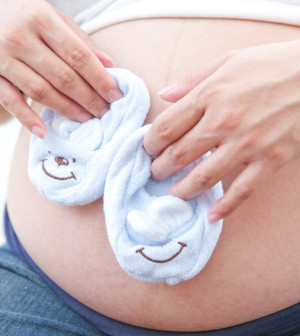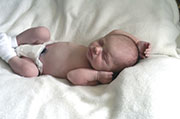- Could Your Grocery Store Meat Be Causing Recurring UTIs?
- Are You Making This Expensive Thermostat Error This Winter?
- Recognizing the Signs of Hypothyroidism
- 10 Strategies to Overcome Insomnia
- Could Artificial Sweeteners Be Aging the Brain Faster?
- Techniques for Soothing Your Nervous System
- Does the Water in Your House Smell Funny? Here’s Why
- Can a Daily Dose of Apple Cider Vinegar Actually Aid Weight Loss?
- 6 Health Beverages That Can Actually Spike Your Blood Sugar
- Treatment Options for Social Anxiety Disorder
Painkiller-Addicted Babies a Growing U.S. Concern, Especially in Fla.


Doctors in the United States are seeing more infants born addicted to narcotic painkillers — a problem highlighted by a new Florida-based report.
These infants experience what’s called neonatal abstinence syndrome as they undergo withdrawal from the addictive drugs their mothers took during pregnancy. Most often these are narcotic painkillers, such as oxycodone, morphine or hydrocodone, according to the report from the U.S. Centers for Disease Control and Prevention.
Since 1995, the number of such newborns jumped 10-fold in Florida while tripling nationwide, the researchers said.
“These infants can experience severe symptoms that usually appear within the first two weeks of life,” said lead researcher Jennifer Lind, a CDC epidemiologist.
The symptoms can include seizures, fever, excessive crying, tremors, vomiting and diarrhea, she said. And withdrawal can take a few weeks to a month.
Dr. David Mendez is a neonatologist at Miami Children’s Hospital. He said, “Being in Florida, I can tell you there’s been an explosion in the number of babies going through neonatal abstinence syndrome. It’s clearly related to the exposure moms have to all narcotic painkillers.”
Mendez said the infants go through a difficult time, but they do recover.
Sometimes it’s enough to keep these babies in a quiet environment, but almost four out of five need treatment with morphine or the anticonvulsant phenobarbital to quell seizures and other withdrawal symptoms, Lind said.
The report — which used data from three Florida hospitals — cites a need for improved counseling and treatment of drug-abusing and drug-dependent women earlier in pregnancy.
Previous studies have found that addiction to narcotic painkillers can increase the risk for premature births, low birth weight and birth defects, Lind said. “Some of the birth defects are heart defects and defects of the brain and the spine,” she said.
“More studies are needed to look at long-term outcomes,” she added.
In 2009, the national incidence of neonatal abstinence syndrome was 3.4 per 1,000 births, less than Florida’s total of 4.4 per 1,000 births, according to background information in the report. Florida officials, alarmed by the increase, last year asked the CDC for help in assessing the problem.
According to the report, 242 infants with neonatal abstinence syndrome were identified in three Florida hospitals in the two-year period from 2010 to 2011.
The researchers found that 99.6 percent of these babies had been exposed to narcotic painkillers and had serious medical complications, according to the March 6 issue of the CDC’s Morbidity and Mortality Weekly Report.
Nearly all of the addicted infants required admission to the neonatal intensive care unit, and average length of stay was 26 days, the investigators found.
The condition is very expensive to treat, Lind said.
Mendez added that lengthy hospital stays aren’t just for treatment. “Some of it is due to the social issues that affect these babies,” he said.
The mothers are often incapable of caring for their babies, Mendez explained. “Hospitals become the babysitter while social services arrange for a new home for the baby,” he said.
Lind said that only about 10 percent of the babies’ mothers had been referred for drug counseling or rehabilitation during pregnancy, even though many tested positive for drugs in urine tests.
Neonatal abstinence syndrome is preventable simply by not taking drugs or by getting treatment for addiction, she said.
From conception on, a pregnant woman is responsible for another human being, Mendez stressed. “Anything a woman does to herself she does to her baby. So if you are engaged in high-risk behavior, if you are taking drugs, they are going to impact the baby,” he said.
Reporting requirements differ state by state, Lind said. Florida hospitals now must notify the state’s Department of Children and Families of any infant with traces of a narcotic in the blood.
More information
For more about neonatal abstinence syndrome, visit the U.S. National Library of Medicine.
Source: HealthDay
Copyright © 2026 HealthDay. All rights reserved.










